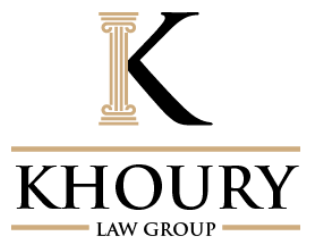What’s the Difference Between Small Claims and Civil Court?
When a legal dispute arises—whether over unpaid rent, a damaged car, or an unpaid invoice—you might hear terms like small claims court or civil court. But what’s the difference between the two, and which one is right for your situation?
Let’s break it down.
1. The Basics: What Are These Courts?
Small claims court is a specialized division of the civil court system that deals with disputes involving relatively small amounts of money. It’s designed to be faster, more accessible, and less formal than other types of court.
Civil court refers to the broader legal system where private individuals or entities resolve non-criminal disputes, including personal injury cases, contract breaches, property disputes, and more. This includes small claims, but also handles much larger and more complex cases.
2. Dollar Limits
One of the biggest differences is the monetary limit of the claim.
- Small claims court: Each state sets its own cap—usually between $2,500 and $25,000. For example, in California, you can sue for up to $10,000 (or $5,000 if you’re a business).
- Civil court: There’s no strict cap. You can sue for any amount, from a few thousand to millions, depending on the nature of the dispute.
If your case exceeds the small claims limit, you’ll need to go to regular civil court.
3. Legal Representation
- Small claims: You usually represent yourself. Lawyers are often not allowed, or discouraged, to keep things simple and affordable.
- Civil court: Lawyers are typically involved, especially for more complicated or high-stakes cases. Legal procedures are more complex, and professional representation is often necessary.
4. Procedures and Speed
- Small claims court: Think of it as the “express lane.” It’s designed for quick resolution—often within a few months. The rules of evidence and procedure are more relaxed.
- Civil court: Cases move more slowly. Complex cases can take months or even years to resolve, especially if they go to trial.
5. Types of Cases
Small claims court is best for:
- Unpaid debts or rent
- Property damage
- Minor contract disputes
- Security deposit returns
- Simple consumer complaints
Civil court is better suited for:
- Personal injury lawsuits
- Breach of large contracts
- Employment disputes
- Property or real estate conflicts
- Cases involving injunctions or non-monetary relief
6. Appeals and Finality
- Small claims court: In many states, the right to appeal is limited. Often only the defendant can appeal, and only under certain conditions.
- Civil court: Either party can generally appeal the decision, which can lead to a longer process.
7. Filing Fees
- Small claims: Lower fees—often under $100 to file a case.
- Civil court: Fees can be significantly higher, and additional costs for motions, court reporters, or service of process may apply.
Bottom Line: Which Should You Choose?
- Choose small claims court if your dispute involves a relatively small amount of money, is straightforward, and you’re comfortable representing yourself.
- Choose civil court for more complex cases, higher stakes, or if you need a lawyer’s help.
Understanding the difference helps you make informed decisions about how to pursue justice efficiently and effectively.
Need legal help? In California, navigating legal challenges, whether they involve personal injury, workers’ compensation, criminal defense or civil litigation, can be overwhelming. Khoury Law Group is here to provide the critical legal support you need. As a leading advocate for individuals facing legal battles, our experienced attorneys understand the complexities of the legal system and are committed to fighting for your best interests. With personalized legal strategies and compassionate support, we are dedicated to achieving the justice and compensation you deserve.
CONTACT US FOR HELP. Call us at (888) 354-6879 or fill out the form on our Contact page.





